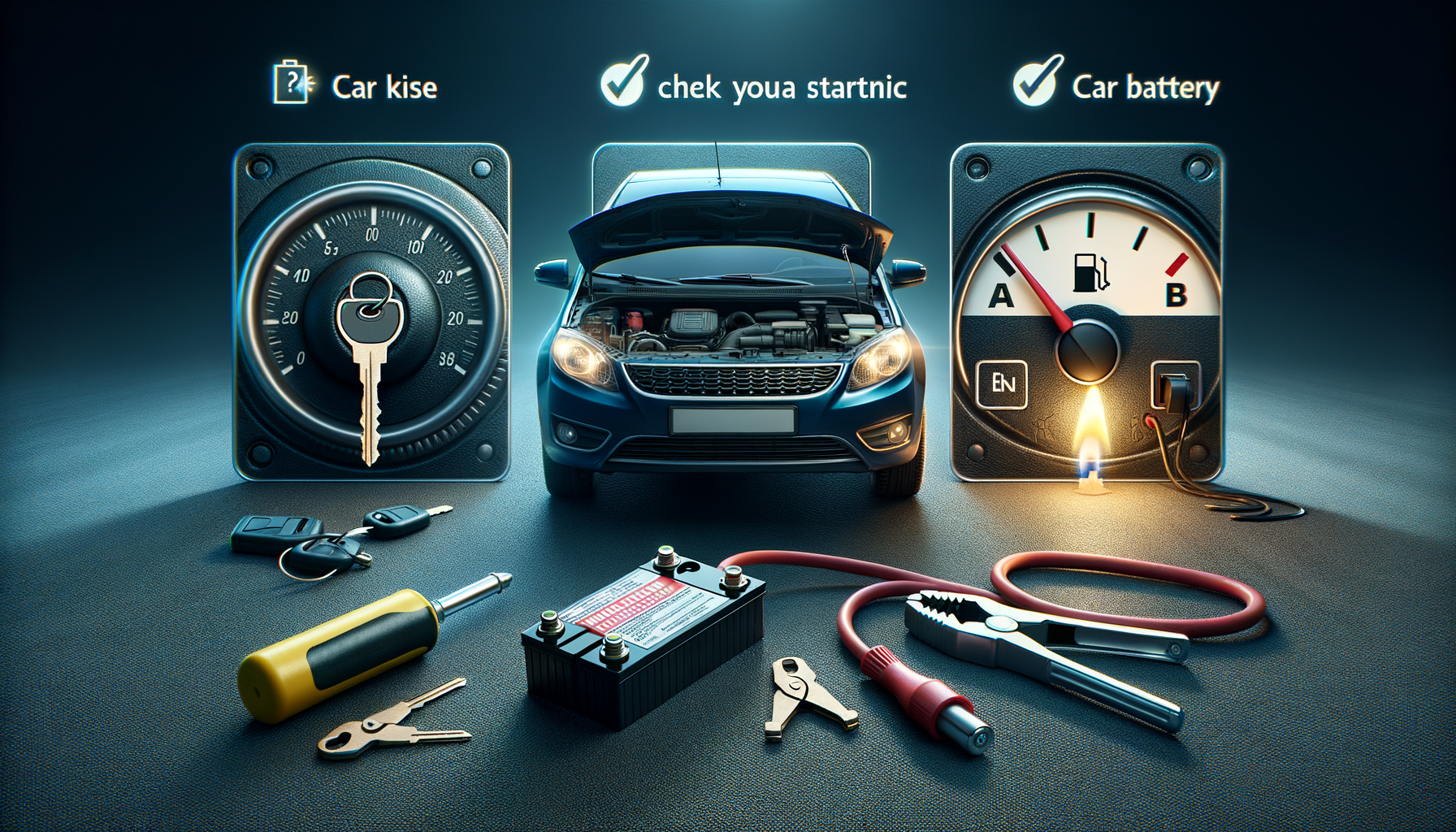Car Won’t Start? Check These 3 Things Before Calling a Mechanic.
Understanding the basics of car repair can save time and money, and prevent unnecessary stress.

Introduction: The Importance of Basic Car Repair Knowledge
Understanding the basics of car repair can save time and money, and prevent unnecessary stress. Whether you’re stuck in a parking lot or your driveway, knowing a few key things about your car can help you troubleshoot issues before calling a mechanic. This not only empowers you as a car owner but also helps in making informed decisions about vehicle maintenance. In this article, we will explore three essential checks to perform when your car won’t start, ensuring you’re prepared for those unexpected moments.
Check the Battery: The Heart of Your Car’s Electrical System
The battery is often the first suspect when a car won’t start. It powers the ignition system and all the electrical components in your vehicle. A dead or weak battery can prevent your car from starting, leaving you stranded. Before calling a mechanic, check the battery connections. Ensure the terminals are clean and tightly connected. Corrosion on the terminals can impede the flow of electricity, causing startup issues.
To test the battery, you can use a multimeter. A healthy car battery should read around 12.6 volts or more when the engine is off. If the reading is below this, the battery may need charging or replacement. Additionally, check if the battery is old. Most car batteries last between three to five years, and if yours is nearing this age, it might be time for a new one.
Regular maintenance can extend the life of your battery. Here are some tips:
- Keep the battery terminals clean and free from corrosion.
- Ensure the battery is securely mounted to prevent vibrations.
- Limit the use of electronic accessories when the engine is off.
Inspect the Fuel System: Ensuring Efficient Fuel Delivery
If your car’s engine cranks but doesn’t start, the fuel system might be the culprit. Start by checking the fuel gauge to ensure there’s enough fuel in the tank. Running out of fuel is a common yet easily overlooked issue. If fuel levels are adequate, consider the fuel pump and fuel filter.
The fuel pump is responsible for delivering fuel from the tank to the engine. If it fails, the engine won’t receive the necessary fuel to start. Listen for a humming sound from the rear of the car when you turn the ignition key to the “on” position. If there’s no sound, the fuel pump might be faulty.
The fuel filter, on the other hand, keeps debris and impurities out of the engine. A clogged fuel filter can restrict fuel flow, causing start-up problems. Replacing the fuel filter is a routine maintenance task that can prevent such issues.
To maintain the fuel system:
- Replace the fuel filter according to the manufacturer’s recommendations.
- Use high-quality fuel to prevent deposits and clogs.
- Regularly check the fuel lines for leaks or damage.
Examine the Ignition System: Spark Plugs and Wires
The ignition system is crucial for starting your car. It ignites the air-fuel mixture in the engine’s cylinders, enabling the car to start and run. If your car cranks but doesn’t start, the spark plugs or ignition wires could be the issue.
Spark plugs ignite the fuel-air mixture, and if they’re worn out or fouled, they can cause starting problems. Inspect the spark plugs for signs of wear, such as carbon deposits or damage. Replacing them is a simple task that can make a significant difference in engine performance.
Ignition wires carry the electrical current from the ignition coil to the spark plugs. Damaged or worn-out wires can lead to weak or absent sparks, preventing the engine from starting. Inspect the wires for cracks or wear and replace them if necessary.
To keep the ignition system in good shape:
- Regularly replace spark plugs as per the car manufacturer’s schedule.
- Inspect ignition wires for wear and replace them when needed.
- Use high-quality replacement parts for better performance.
Conclusion: Empowering Yourself with Basic Car Repair Skills
Being equipped with basic car repair knowledge can transform a potentially stressful situation into a manageable one. By checking the battery, fuel system, and ignition system, you can identify common issues that prevent your car from starting. This proactive approach not only saves time and money but also enhances your confidence as a car owner. Remember, regular maintenance is key to preventing unexpected breakdowns and ensuring your vehicle remains reliable. With these insights, you can tackle minor car issues with ease and know when it’s time to seek professional help.